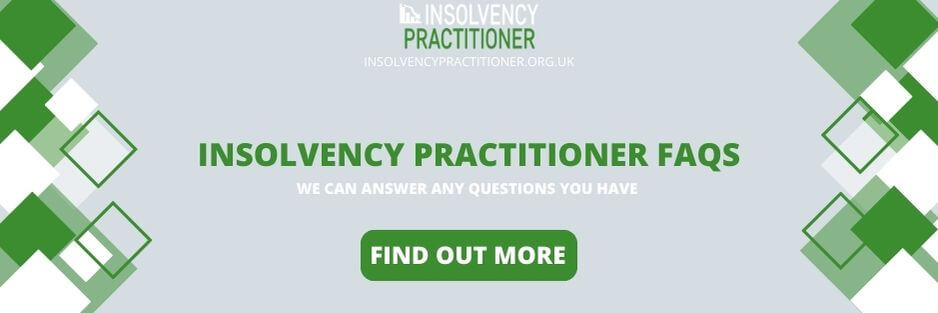
Insolvency Practitioner in Cardiff
Get in Touch Today to Speak to a Specialist Adviser
At InsolvencyPractitioner.co.uk, our licensed insolvency practitioners in Atherton deliver tailored corporate recovery solutions and regulated advisory services to UK company directors.
Whether you’re considering a Creditors’ Voluntary Liquidation (CVL), Members’ Voluntary Liquidation (MVL), pre-pack administration, or need urgent advice to avoid compulsory liquidation, our experts are here to help in 2025’s challenging financial climate.
We work with directors, shareholders, and creditors across the UK to manage cash flow issues, navigate director redundancy claims, and negotiate directly with HMRC, Companies House, and secured lenders. Our team is fully regulated by the Insolvency Practitioners Association (IPA) and aligns with guidance from The Insolvency Service.
From business restructuring to ethical company closure, we provide clarity, legal protection, and peace of mind through every stage of your insolvency journey.
Contact Insolvency Practitioner in South Glamorgan for a consultation on your company insolvency services.
Company Liquidation Services in Cardiff
If your company can no longer meet its liabilities, our licensed insolvency practitioners in Cardiff offer full support through Creditors’ Voluntary Liquidation (CVL) and Members’ Voluntary Liquidation (MVL),
Our IPs ensure a compliant and efficient liquidation process.
We explain every step and ensure minimal disruption while protecting you from wrongful trading or director disqualification.
Creditors Voluntary Liquidation (CVL)
A CVL (Creditors’ Voluntary Liquidation) is a formal insolvency process used to close a limited company that cannot pay its debts.
We help Cardiff company directors protect themselves legally and close their business in a structured way while reducing exposure to personal liability.
We handle all statutory paperwork, notify Companies House, and liaise with creditors, ensuring compliance with the Insolvency Act 1986.
Members Voluntary Liquidation (MVL)
An MVL (Members’ Voluntary Liquidation) is a formal process to close a solvent limited company.
MVL allows Cardiff company directors to extract retained profits tax-efficiently.
MVL requires appointing a licensed insolvency practitioner, submitting a declaration of solvency, and notifying Companies House and HMRC.
An MVL enables entrepreneurs to claim Business Asset Disposal Relief (BADR) and reduce Capital Gains Tax liabilities.

Business Rescue and Recovery Solutions
Directors in Cardiff looking to save viable businesses benefit from our business rescue strategies.
We assess all turnaround options, including CVAs, refinancing, informal creditor arrangements, and operational restructuring.
We also assist in preparing cash flow forecasts and restructuring plans for board approval.
Company Voluntary Arrangement (CVA)
A CVA enables you to repay creditors over time while continuing to trade.
We negotiate realistic repayment terms that preserve your company’s future.
A CVA also avoids the stigma and loss of control associated with administration or liquidation.
Time to Pay Arrangements (TTP) with HMRC
We help negotiate structured payment plans with HMRC to manage VAT, PAYE, and corporation tax arrears without triggering legal action.
Our relationships with HMRC and experience with enforcement avoidance ensure smoother negotiations.



Company Administration and Pre-Pack Insolvency Options Cardiff
Company administration may be appropriate if your business in Cardiff needs urgent protection from creditors.
We offer expert advice on pre-packaged sales to preserve jobs and business value.
This is especially useful for companies with significant goodwill or ongoing contracts they wish to protect.
What is Pre-Pack Administration?
This process involves selling the business and assets before appointing an administrator.
We ensure transparency, valuation compliance, and creditor communication.
Pre-packs can help save a company brand and employee base while dealing with legacy debt.
Advantages of Administration Over Liquidation
Administration allows the business to continue trading under protection, often resulting in better outcomes for creditors and directors.
It provides a legal moratorium that freezes creditor action and gives directors time to implement a recovery strategy.
Director Advice and Legal Support During Insolvency
Directors in Cardiff face legal obligations during insolvency.
We advise on wrongful trading risks, director disqualification, and how to make compliant decisions.
Early advice can help preserve your reputation, avoid personal financial exposure, and manage stakeholder communication.
When Should a Director Appoint an Insolvency Practitioner?
If your business can’t pay its debts, seeking help early is crucial. We provide confidential guidance to avoid personal liability.
Signs you need help include: mounting tax arrears, bounced payments, creditor threats, and court actions.
Protecting Yourself as a Director
We help you understand fiduciary duties, mitigate risks, and document decision-making to avoid future claims.
Our service includes board resolution templates, financial documentation support, and director indemnity consultation.

HMRC Debts and Time to Pay Agreements
Struggling with HMRC arrears in Cardiff?
We act fast to prevent enforcement action and propose manageable TTP plans that protect your business.
We also help with appeal letters, penalty mitigation, and correspondence handling with enforcement officers.
Director Redundancy and Entitlements
Company directors in Cardiff may qualify for redundancy payments if closing via CVL.
We handle claims with the Redundancy Payments Service (RPS). These payments can help fund the liquidation and cover personal income during transition.
How to Choose a Licensed Insolvency Practitioner in Cardiff
Look for IPA regulation, proven experience, and local understanding.
We offer free consultations and fully transparent advice. Also, check for testimonials, case studies, and whether the practitioner is listed on the Insolvency Service register.

Insolvency vs Liquidation – What’s the Difference?
Insolvency is a financial state; liquidation is a formal process. We help Cardiff directors decide the best course for their business.
Not all insolvent companies need to liquidate, some can restructure and continue trading.
What Does an Insolvency Practitioner Do?
We act as a neutral third party to manage insolvent estates, protect creditors, support directors, and comply with UK insolvency law.
Responsibilities include asset valuation, creditor reporting, staff communication, and filing with Companies House and HMRC.
Trusted by Directors Across Greater Cardiff
Our team has helped hundreds of directors across Cardiff and the UK with business rescue, liquidation, and turnaround strategies.
We are the trusted local name in corporate insolvency.
Regulated by the Insolvency Practitioners Association (IPA)
As fully licensed and regulated IPs, we follow strict professional standards and ethical frameworks.
You can verify our credentials via the Insolvency Service directory.
Contact Your Local Insolvency Expert Today
Speak to a licensed insolvency practitioner in Cardiff today.
We offer free, confidential consultations with no obligation. Call now or book a callback to receive tailored advice within 24 hours.
Find More Info
Make sure you contact us today for a number of great insolvency practitioner services in Cardiff.
Here are some towns we cover near Cardiff.
Grangetown, Cathays, Canton, Fairwater, PenarthFor more information on insolvency practitioner services in Cardiff, fill in the contact form below to receive a free quote today.
★★★★★
“The team at Insolvency Practitioner was a lifesaver for our business. Their expert guidance and swift actions helped us navigate through a complex insolvency situation. We were impressed with their professionalism, attention to detail, and commitment to finding the best solutions. Thanks to their efforts, we were able to minimize the impact and move forward with confidence.”
Harvey Moore
South Glamorgan
★★★★★
“We can’t thank Insolvency Practitioner enough for their exceptional support. Their in-depth knowledge and prompt actions were crucial in resolving our insolvency challenges. Their personalized approach and clear communication made us feel heard and supported throughout the process. We highly recommend their services to anyone in need of reliable and professional insolvency advice.”
Lewis Kennedy
South Glamorgan
